Search Results
Showing results 41 to 60 of 106
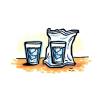
Exploring Moisture on the Outside of a Cold Cup
Source Institutions
In this activity, learners explore the relationship between cooling water vapor and condensation. Learners investigate condensation forming on the outside of a cold cup.
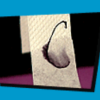
Chromatography
Source Institutions
In this activity, explore chromatography and the various colors that make up the ink in markers. Use this activity to investigate cohesion and adhesion.

Meltdown
Source Institutions
In this activity, learners heat ice and water of the same temperature to get a hands-on look at phase changes. This is an easy and inexpensive way to introduce states of matter and thermodynamics.

Black Magic (Color Chromatography)
Source Institutions
With a coffee filter, a black marker, and a cup of water, discover the secret colors hidden in black ink.

Exploring the Universe: Ice Orbs
Source Institutions
“Exploring the Solar System: Ice Orbs” is a hands-on activity in which visitors investigate a frozen orb, trying to learn about objects hidden inside.
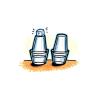
Condensation
Source Institutions
In this activity, learners explore the process of condensation.
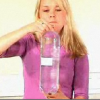
Cartesian Diver
Source Institutions
In this demonstration, learners observe the effects of density and pressure. A "diver" constructed out of a piece of straw and Blu-Tack will bob inside a bottle filled with water.
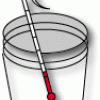
Cooling the Mummy's Tomb
Source Institutions
In this activity, learners conduct an experiment to help Pharaoh design a better insulated tomb.
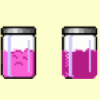
See It to Believe It: Visual Discrimination
Source Institutions
In this activity (12th on the page), learners investigate their ability to discriminate (see) different colors.
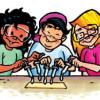
Look-alike Liquids
Source Institutions
Learners add drops of four liquids (water, alcohol, salt water, and detergent solution) to different surfaces and observe the liquids' behavior.
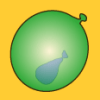
Loony Balloons
Source Institutions
In this activity, learners investigate how changing the center of gravity of a balloon affects how it travels. Learners fill a balloon with a little bit of water and insert into an empty balloon.
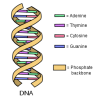
Close, Closer, Closest
Source Institutions
In this activity, learners perform an experiment that models a chromatography-like process called electrophoresis, a process used to analyze DNA.
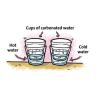
Temperature Affects the Solubility of Gases
Source Institutions
In this activity, learners heat and cool carbonated water to find out whether temperature has an effect on how fast the dissolved gas leaves carbonated water.
Build A Hydrometer
Source Institutions
In this activity, learners will explore how a hydrometer works by building a working model and conducting experiments.
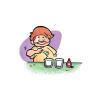
Defining Dissolving
Source Institutions
In this introductory activity, learners discover that sugar and food coloring dissolve in water but neither dissolves in oil.
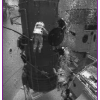
Weighty Questions
Source Institutions
In this activity about humans and space travel (page 1 of PDF), learners compare and contrast the behavior of a water-filled plastic bag, both outside and inside of a container of water.
Investigating Convection
Source Institutions
This experiment is designed to illustrate how fluids, including water, have the ability to flow.
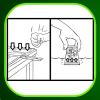
Dunk and Flip
Source Institutions
Learners complete two simple experiments to prove the existence of air and air pressure which surround us.
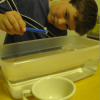
Shrinking Cups
Source Institutions
This is a quick activity (on page 2 of the PDF under Gecko Feet Activity) about the forces of gravity and surface tension and how their behavior is influenced by size.
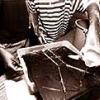
Squeeze the Stream
Source Institutions
In this activity related to flight, learners build a tiny stream channel to investigate how fluids (air and water) change speed as they flow between and around objects.
